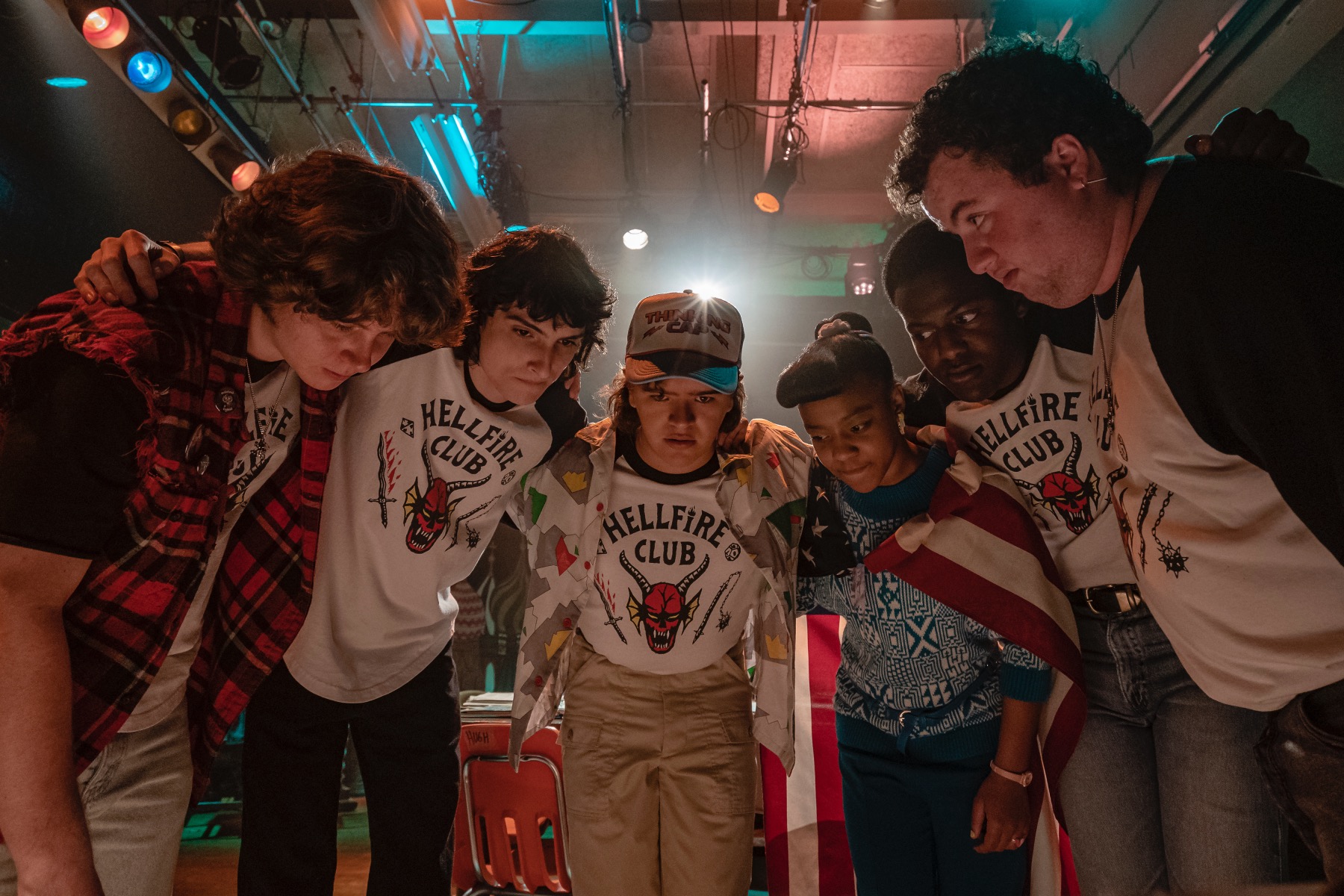
- Industry
Hollywood Owes More than One Talent to ‘Dungeons & Dragons’
Actors Vin Diesel, Joseph Gordon-Levitt, Deborah Ann Woll, and Vince Vaugh, producers David Benioff and D.B. Weiss, journalist Anderson Cooper, and TV host Stephen Colbert all have one thing in common. They played Dungeons & Dragons at some point in their lives and shared their experiences of the game also known as D&D.
The game is known for helping develop imagination, leadership, teamwork, empathy, and a sense of community in each crusade or campaign.
In front of the D&D board, each player first chooses a character to interpret and play among a series of archetypal possibilities, including a ranger, cleric, sorcerer, healer, paladin, or warrior, among others and rolls the dice to fill out a list of attributes and skills.
“I was in high school and I was a boy with social problems,” Colbert recalled on NPR’s Fresh Air. “I was a real nerd who was not accepted by my classmates.
“I played a lot of D&D and found that the aspect of being able to play a character and improvise helped me make up stories. Then I started getting along with more popular kids because I was already good at telling them things that made them laugh.”
The comedian, host of The Late Show with Stephen Colbert on CBS, also grew up reading The Lord of the Rings books (which inspired the Golden Globe-winning film adaptations) and was one of many school-age students who’d rather spend countless hours playing D&D in house basements with friends, than to go out navigating the dangerous world of romantic dates.
The game received an homage in the Golden Globe winner E.T., The Extraterrestrial (1982) when we meet an 11-year-old Elliot, who wanted to participate in a game crusade with his older brother and his friends.
By the end of the film, Elliott has already grown in experience by being in charge of E.T. He wins the prize of “absolute power” to decide the fate of those who had previously turned their backs on him.
“Playing D&D was a training ground for our imaginations and an opportunity to explore our own identities,” Diesel wrote in the foreword of 30 Years of Adventure: A Celebration of Dungeons & Dragons, published by Wizards of the Coast in 2004.
“I started acting when I was seven, and this game was a constant exercise in developing voices and characters. I believe now, but probably did not realize then, that I was attracted to the artistic outlet the game provided. My D&D journey paralleled my search for identity in those growing years.”
D&D offers each player the opportunity to have an experience of abstraction of the world, with a moderator and guide called the Dungeon Master who presents and describes each challenge to be overcome – sometimes supported by a board and mini-figures – with missions such as rescuing a princess, hunting down a troll or freeing a town from a spell.
Each campaign could last from months to years, forcing the members to be present in almost all of the sessions, focusing only on the game. That became an issue in the early 1980s when it was exploited by religious extremist groups which insinuated the alienation of the participants could lead them to commit crimes, be prone to suicide or even commit murder.
When the creators of the Golden Globe-nominated series Stranger Things looked for a conflict for its new season in 2022, they realized that the Hellfire Club’s passion for playing D&D was ideal for them to become a target from the population of the fictional town of Hawkins, Indiana.
The topic of losing a sense of reality was also addressed by Hollywood in the 1982 TV movie Mazes and Monsters, in which Golden Globe winner Tom Hanks represents a successful young university student who, by assuming a character in a role-playing game of dragons and knights, ends up losing his mind, alienated from his reality and with no possibility of returning to be who he was.
D&D, like any other entertainment experience, including comics in their era of censorship, has come under the scrutiny of psychologists and educators, as well as the mass media.
But there is no doubt that the role-playing game started an entire genre by itself and video games such as World of Warcraft, Elder Scrolls, and Star Wars: The Old Republic, which inherited the game’s attributes of putting the player’s consciousness, not by a rolling of a dice, but by a finger ready to press a button.
“For years, I compulsively played D&D but it became my first experience of building worlds,” Weiss, co-creator of the television adaptation of the Golden Globe-winning series Game of Thrones, told The Hollywood Reporter.
“You can realize all the possibilities to the ‘what if…?’ and check the results in real-time with your players in front of you. And of course, many times the goal was to have sex with imaginary women.”
Translation by Mario Amaya

